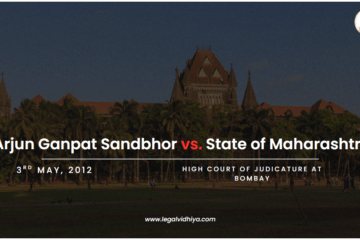
| Citation | (2011) 11 SCC 1 |
| Date of Judgment | 31st March,2011 |
| Court | Supreme Court of India |
| Case Type | Civil Appeal No. 2844 of 2011 |
| Appellant | Revanasiddappa |
| Respondent | Mallik Arjun & Ors |
| Bench | G.S. Singhvi & Asok Kumar Ganguly |
| Referred | Section- 16 (3) |
FACTS OF THE CASE
- The inquiry raised under the steady gaze of the Supreme Court, in this case, is whether an illegitimate child under Section 16(3) of the Hindu Marriage Act is qualified to inherit the tribal property of his folks regardless of whether his share is simply confined to oneself procured property of his folks?
- While examining this issue, the court investigated its own points of reference and came out with an alternate view. Section 16(3) discusses the privileges of children conceived out of voidable and void marriages. It says that they can attest freedoms to the property of their folks.
- The court additionally saw that the word property used in this section isn’t qualified with anything that would recommend that the legislature intended to keep the meaning of the property general and expansive in this section, and not explicitly a familial or self- obtained property.
ISSUES
- Whether illegitimate children are entitled to a share in the coparcenary property or whether their share is limited only to the self- acquired property of their parents under Section 16(3) of the Hindu Marriage Act?
ARGUMENTS
Aggrieved, the defendants filed an appeal against the judgement of the Trial Court. The First Appellate Court, vide order dated 23.11.2005, reappreciated the entire evidence in record and affirmed the findings of the Trial Court that the suit properties were ancestral properties and that the third plaintiff was the legally wedded wife of the first defendant, whose marriage with the fourth defendant was void and thus children form such marriage were illegitimate. However, the Appellate Court reversed the findings of the Trial Court that illegitimate children had no right to a share in the coparcenary property by relying on a judgement of the Division Bench of the Karnataka High Court in Smt. Sarojamma & Ors. V. Smt. Neelamma & Ors., [ ILR 2005 Kar 3293].
JUDGEMENT
The Supreme Court while observing that Section 16(3) of the Hindu Marriage Act,1955 (herein referred to as the
“Act”) declares that children of a void or voidable marriage as legitimate but expressly provides that they are entitled to claim only the property of their parents and not of any other relation, ruled that such children shall be considered at par with the legitimate offsprings of valid marriages without any discrimination and be entitled to all the right in the self- acquired and ancestral property of their parents. However, the only limitation is that such children cannot ask for partition before the death of their parents.
Thereafter, for the purposes of the case in hand, the Court while setting aside the judgements of the courts below, viewed that the Appellants which are children from a second wife of the Defendant no. 1 had rights to his ancestral property.
REFERENCES
https://www.lawyersclubindia.com
This Article is written by Raunak of Vikramajit Singh Sanatan Dharma College, Intern at Legal Vidhiya.



0 Comments